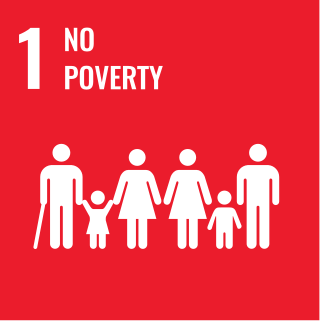
Earth Day is an annual event on April 22 to demonstrate support for environmental protection. First held on April 22, 1970, it now includes a wide range of events coordinated globally by EARTHDAY.ORG including 1 billion people in more than 193 countries. The official theme for 2024 is "Planet vs. Plastics." 2025 will be the 55th anniversary of Earth Day.

International Women's Day (IWD) is a holiday celebrated annually on March 8 as a focal point in the women's rights movement. IWD gives focus to issues such as gender equality, reproductive rights, and violence and abuse against women. Spurred by the universal female suffrage movement, IWD originated from labor movements in North America and Europe during the early 20th century.

International development or global development is a broad concept denoting the idea that societies and countries have differing levels of economic or human development on an international scale. It is the basis for international classifications such as developed country, developing country and least developed country, and for a field of practice and research that in various ways engages with international development processes. There are, however, many schools of thought and conventions regarding which are the exact features constituting the "development" of a country.

World Water Day is an annual United Nations (UN) observance day held on the 22nd of March that highlights the importance of fresh water. The day is used to advocate for the sustainable management of freshwater resources. The theme of each year focuses on topics relevant to clean water, sanitation and hygiene (WASH), which is in line with the targets of Sustainable Development Goal 6. The UN World Water Development Report (WWDR) is released each year around World Water Day.

World Ocean Day is an international day that takes place annually on 8 June. The concept was originally proposed in 1992 by Canada's International Centre for Ocean Development (ICOD) and the Ocean Institute of Canada (OIC) at the Earth Summit – UN Conference on Environment and Development (UNCED) in Rio de Janeiro, Brazil. The Ocean Project started global coordination of World Ocean Day starting in 2002. "World Oceans Day" was officially recognised by the United Nations in 2008. The international day supports the implementation of worldwide Sustainable Development Goals (SDGs) and fosters public interest in the protection of the ocean and the sustainable management of its resources. World Oceans Day is observed by all UN member states, incl. Argentina, Australia, Austria, Brazil, Canada, Chile, Denmark, Finland, France, Germany, India, Israel, Italy, Japan, Mexico, Poland, South Africa and the United States.

World Food Day is an international day celebrated every year worldwide on October 16 to commemorate the date of the founding of the United Nations Food and Agriculture Organization in 1945. The day is celebrated widely by many other organizations concerned with hunger and food security, including the World Food Programme, the World Health Organization and the International Fund for Agricultural Development. WFP received the Nobel Prize in Peace for 2020 for their efforts to combat hunger, contribute to peace in conflict areas, and for playing a leading role in stopping the use of hunger in the form of a weapon for war and conflict.
In its Proclamation on Aging, the United Nations General Assembly decided to declare 1999 as the International Year of Older Persons (IYOP). The proclamation was launched on 1 October 1998, the International Day of Older Persons, by United Nations Secretary General Kofi Annan.

The Global Call to Action Against Poverty (GCAP) is a network of over 11,000 civil society organizations (CSOs) dedicated to social justice, established in 2005 during the World Social Forum in Porto Allegre. It represents approximately 58 national groups. It serves as a platform for individuals and organizations to unite against systemic factors perpetuating poverty and inequalities.

The International Volunteer Day for Economic and Social Development, more commonly referred to as International Volunteer Day (IVD), is an international observance mandated by the UN General Assembly in 1985. It offers an opportunity for volunteer-involving organizations and individual volunteers to promote volunteerism, encourage governments to support volunteer efforts, and recognize volunteer contributions to the achievement of the Sustainable Development Goals (SDGs) at local, national, and international levels. International Volunteer Day is marked and supported by the United Nations Volunteers (UNV) programme. UNV coordinates a campaign to promote IVD every year.
International Cooperative Day is an annual celebration of the cooperative movement observed on the first Saturday in July since 1923 by the International Cooperative Alliance.

The International Day of Forests was established on the 21st day of March, by resolution of the United Nations General Assembly on November 28, 2013. Each year, various events celebrate and raise awareness of the importance of all types of forests, and trees outside forests, for the benefit of current and future generations. Countries are encouraged to undertake efforts to organize local, national, and international activities involving forests and trees, such as tree planting campaigns, on International Day of Forests. The Secretariat of the United Nations Forum on Forests, in collaboration with the Food and Agriculture Organization, facilitates the implementation of such events in collaboration with governments, the Collaborative Partnership on Forests, and international, regional and subregional organizations. International Day of Forests was observed for the first time on March 21, 2013.
7 Billion Actions is a worldwide campaign established by the United Nations Population Fund (UNFPA) in 2011 to commemorate the world population milestone of 7 billion people. UNFPA is a United Nations organization that works on population and development issues, with an emphasis on reproductive health and gender equality. 7 Billion Actions works with multiple corporations, organizations and individuals to address the 7 Key Issues such as poverty, gender equality, youth, ageing, urbanization, environment, and reproductive health and rights. The UN has declared the World Population surpassing 7 billion on 31 October 2011. Prior to this date, the UN celebrated the Day of Six Billion in October 1999.

The 2030 Agenda for Sustainable Development, adopted by all United Nations members in 2015, created 17 world Sustainable Development Goals (SDGs). They were created with the aim of "peace and prosperity for people and the planet..." – while tackling climate change and working to preserve oceans and forests. The SDGs highlight the connections between the environmental, social and economic aspects of sustainable development. Sustainability is at the center of the SDGs.

The Global 16 Days Campaign is an international campaign to challenge violence against women and girls. The campaign runs every year from 25th November, the International Day for the Elimination of Violence against Women, to 10 December, Human Rights Day.
2015 was designated the European Year for Development by the European Parliament and the Council of the European Union in Decision No 472/2014/EU.
The following lists events that happened with or in collaboration with the United Nations and its agencies in the year 2019.

The Youth Café is a not-for profit pan-African youth organization that was founded in 2012 and works with young people in Africa and around the world to foster community resilience, propose innovative solutions, drive social progress, enable youth empowerment and inspire political change. The Youth Café is headquartered at Kitisuru Gardens, in Nairobi, Kenya.

Sustainable Development Goal 1, one of the 17 Sustainable Development Goals established by the United Nations in 2015, calls for the end of poverty in all forms. The official wording is: "No Poverty". Member countries have pledged to "Leave No One Behind": underlying the goal is a "powerful commitment to leave no one behind and to reach those farthest behind first".

Global Goals Week is a shared commitment between a coalition of over 160 partners across all industries, which mobilizes annually in September to bring together communities, demand urgency, and supercharge solutions for the Sustainable Development Goals (SDGs). It was founded in 2016 by the United Nations Foundation, Project Everyone, and the United Nations Development Programme (UNDP). It is timed to coincide with the UN General Assembly "High-Level Week" in New York. The week includes events, summits, conferences, forums, workshops, pledges, and other activations in New York, around the world, and online. It usually runs alongside Climate Week NYC, the annual conference of Goalkeepers, Bloomberg Global Business Forum and many other high-level events.

The United Nations Framework Convention on Climate Change (UNFCCC), the Paris Agreement, the Sustainable Development Goals (SDGs), and the United Nations Convention on the Rights of Persons with Disabilities (CRPD) are connected through their common goals of addressing global challenges and promoting sustainable development through policies and international cooperation.














